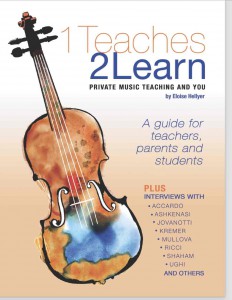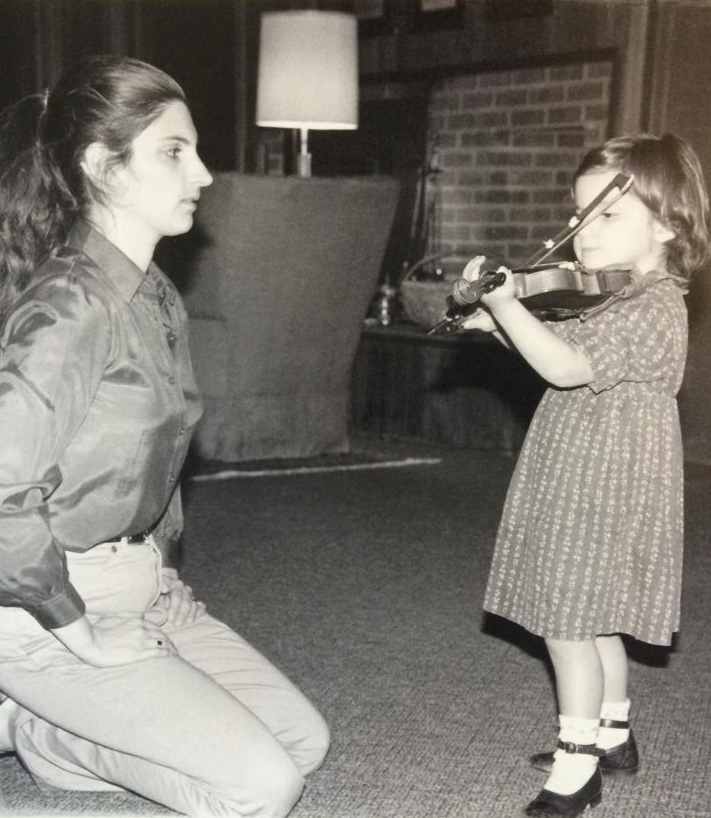Patience Traps, Part 2, part c
Parents, ctd
In order to have a good relationship with the parents of our students, we must remember another very important principle:
PEOPLE DO NOT LIKE TO FEEL YOU ARE BEING PATIENT WITH THEM.
Let’s see how patience with parents works:
- The parent says something that seems idiotic or offensive to you.
- Your feelings are hurt and you pout.
- Obviously perturbed (even though you try to hide it), you patiently explain to this ignoramus whatever it is he is commenting on.
- The parent understands that you are patronizing him.
- The student is bewildered and senses that you and the parent are having an argument.
- The parent feels stupid, the student is embarrassed.
- Everyone is distressed.
There can be no happy ending to the scenario above. Try this instead:
- The parent says something that seems idiotic or offensive to you.
- You stop and ask yourself, “What is it that he really wants to know or what is it he is afraid of?”
- You address the issue, not the person or his manner.
The advantages to this second approach are legion, but to name a few:
- You save time.
- You save the chagrin of the parent and the embarrassment of the student for having such a parent.
- Everyone is happy – or not (maybe you couldn’t address the problems of this parent) but at least you tried and have a clear conscience. You can’t win ‘em all.
- If the parent was trying to be rude and make you uncomfortable, you have deflected this.
- If the parent had some perplexity and didn’t know how or was afraid to express himself properly, you have answered him without judging him or the question or statement.
- You can congratulate yourself on being on high moral ground, that you have behaved admirably (everyone is still alive) and have maintained control of the situation AND the lesson.
- Parent, student and teacher now have the feeling that everyone is pulling together.
We must respect parents who say things that may seem uninformed. At least they are giving us the chance to help them understand our methods and goals.
A colleague, who teaches a music in a local middle school here, decided to make a recording of her students’ orchestral playing. She did a beautiful job, well above and beyond the call of duty. But she told me that some of her parents criticized and complained about the whole process, asking, “What’s so important about making a record anyway?” She was offended and I can’t blame her. However, she didn’t realize at the time that she had missed a great opportunity to get the parents behind her immediately by explaining to them the importance of playing music together, preparing a performance, and making a recording of it. This is what they really wanted and/or needed to know but didn’t know how to ask or didn’t want to seem stupid for asking. We have to jump in with both feet when a teaching situation like this presents itself. This is our chance to say enthusiastically, “I am so glad you brought that up!” Saying this, you transform the potentially offensive remark into a valid concern worthy of consideration and make the objector feel much better about himself for having posed (however badly) a good question. This also makes him far more receptive to your explanation.
When parents express a doubt, reservation or opinion even in a way that may offend you, look at it as a great opportunity to help them or, at least, promote your cause. They have opened a door and you have to walk in that door quickly before it closes. You may never get another chance.
End of Part 2, part c next: uncommunicative parents and finally, a conclusion.
Share this:
Buy it on www.sharmusic.com - eBook format, avaliable worldwide, paperback in North America
COPYRIGHT
ABOUT
A music teacher’s thoughts and observations on the teaching and the study of a musical instrument, hoping to be of help to parents, students and teachers.
PHOTO
AWARDED TOP 25 VIOLIN BLOG
CATEGORIES
TAGS
ARCHIVES
-
Agosto 2022
Agosto 2023
Agosto 2024
April 2015
April 2016
April 2017
April 2019
April 2020
Aprile 2022
Aprile 2023
Aprile 2024
August 2014
August 2015
August 2016
August 2017
August 2018
August 2019
August 2021
December 2014
December 2015
December 2016
December 2017
December 2018
December 2019
December 2020
Dicembre 2022
Dicembre 2023
Dicembre 2024
Febbraio 2022
Febbraio 2023
Febbraio 2024
February 2015
February 2016
February 2018
February 2019
February 2020
February 2021
Gennaio 2022
Gennaio 2023
Gennaio 2024
Giugno 2022
Giugno 2022
Giugno 2023
Giugno 2024
January 2015
January 2016
January 2017
January 2018
January 2019
January 2020
July 2015
July 2017
July 2019
June 2016
June 2017
June 2018
June 2019
June 2020
June 2021
Luglio 2022
Luglio 2023
Luglio 2024
Maggio 2022
Maggio 2023
Maggio 2024
March 2015
March 2016
March 2017
March 2018
March 2019
March 2020
March 2021
Marzo 2022
Marzo 2023
Marzo 2024
May 2015
May 2016
May 2018
May 2019
May 2020
November 2014
November 2015
November 2016
November 2017
November 2018
November 2019
November 2021
Novembre 2022
Novembre 2023
Novembre 2024
October 2014
October 2015
October 2017
October 2018
October 2019
October 2020
October 2021
Ottobre 2022
Ottobre 2023
Ottobre 2024
September 2014
September 2015
September 2016
September 2018
September 2019
September 2020
September 2021
Settembre 2022
Settembre 2023
Settembre 2024
RECENT POSTS
Terry G and Me, or Terry Gilliam on Where (or What) Practicing the Piano Will Get You…
The Teaching We Don’t Do Is More Important Than We Think
Overwhelmingness or What Teaching and Motherhood* Have in Common
Cellphone Serenity
How to Build Your Reputation – the Kind You Want
Desperate Times, Desperate Measures. Or How to Deal With Your Strong-Willed Stubborn Student and Survive
“Why Does My Teacher Get So Frustrated?” Letter to a Perplexed Student
Mount Rush-no-more….And How to Get There
Realizzato con VelociBuilder - Another Project By: Marketing:Start! - Privacy Policy




